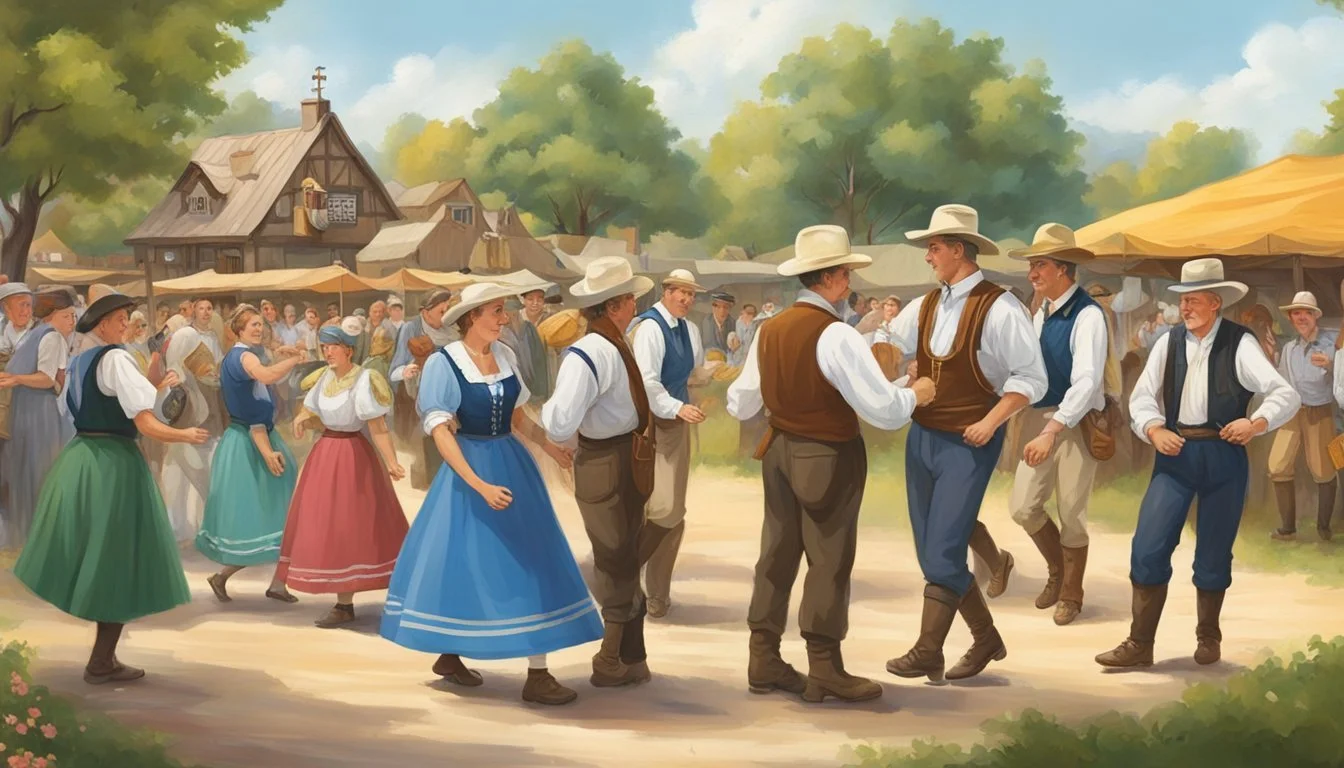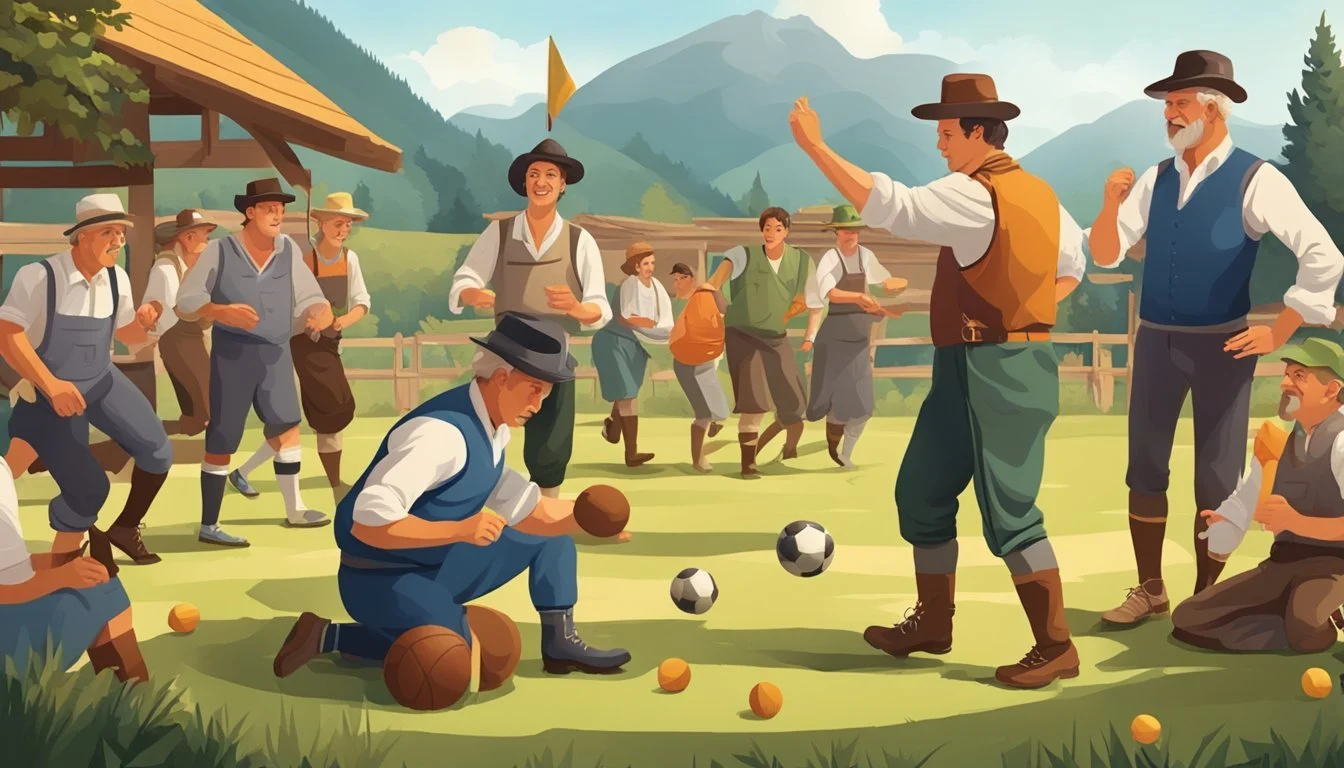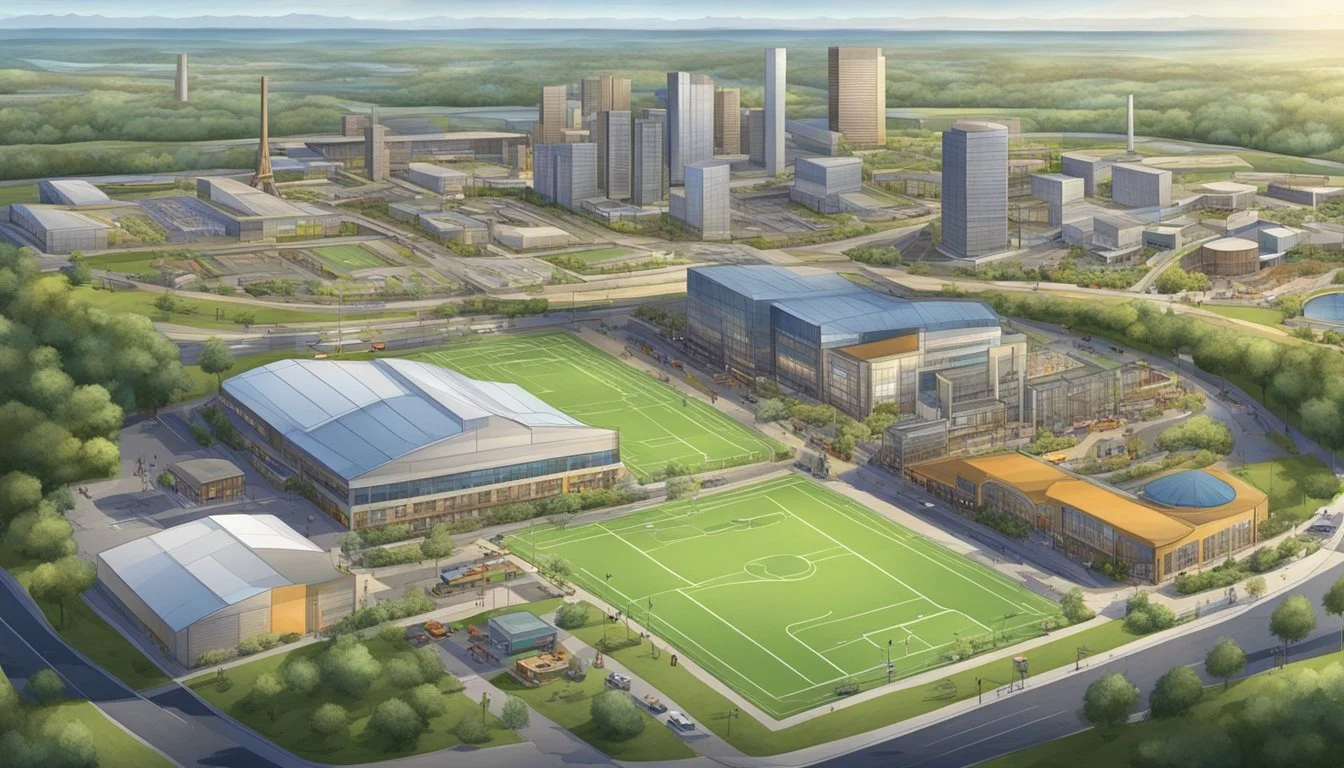German Texan Sports and Recreation
Embracing Cultural Heritage in Athletics
The intertwining of German heritage with Texan culture has given rise to a unique blend of sports and recreation in the U.S. state of Texas. With a significant German presence dating back to the 19th century, Texas has seen the integration of German cultural elements, especially in Central Texas cities like Austin. The German-Texan communities have maintained and celebrated their traditions while also leaving an indelible mark on the broader tapestry of Texas culture. Sports and recreation, as expressive platforms for cultural identity, showcase how traditional German activities have been adopted and adapted by Texans.
In the realm of sports, activities like soccer, which have deep roots in German history, resonate within Texan communities. These sports have been embraced not just as competitive endeavors but also as community events that reinforce cultural bonds. Recreational practices like hunting and fishing, popular among early German settlers, continue to thrive in Texas, dovetailing with the state’s own rich history of such outdoor pastimes.
Language, another vital aspect of cultural heritage, plays a pivotal role in uniting the German-Texan communities. The preservation of Texas German, a distinct dialect developed in the state, exemplifies the dedication to maintaining this unique identity. Community gatherings, often centered around sports and recreation, serve as opportunities for the use and preservation of the German language, further cementing the bond between these two cultures.
Historical Development of German Texan Communities
The German influence in Texas originates from early settlers and endures through various historical challenges, blending traditions with local culture and demonstrating a commitment to preservation and celebration of their heritage.
Early Setters and Settlements
Texas witnessed the arrival of German settlers as early as the 1830s. These pioneers formed settlements that became landmarks of German Texan culture. Two notable towns founded by German immigrants were Fredericksburg and New Braunfels, contributing to the distinctive German character of the Texas Hill Country. Fredericksburg was established in 1846 and named after Prince Frederick of Prussia. New Braunfels was founded by Prince Carl of Solms-Braunfels in 1845.
Political and Social Integration
Over time, German settlers became integral to the social and political fabric of Texas. Education was a cornerstone of German Texan communities, with a strong emphasis on German culture and language. They founded various institutions, including schools and colleges, which played a significant role in the integration and preservation of their heritage. Baylor University is one example of an educational institution where German influence was significant.
World Wars Impact
The World Wars dramatically influenced the German Texan identity. During both World Wars, German Americans faced nationwide suspicion and prejudice. In response, many German Texans anglicized their names and reduced the use of the German language publicly. Despite this, they maintained their culture and traditions within their communities.
Modern Developments and Preservation
In modern times, the German Texan Heritage Society and the Texas State Historical Association are among the organizations dedicated to preserving and promoting German Texan history. Development projects often highlight German Texan contributions, and local festivals continue to celebrate unique German Texan culture. The population's resilience is evident in the active preservation efforts and the ongoing relevance of German influences in the Texas Hill Country and beyond.
Cultural Contributions
German Texans have imprinted their culture on the Lone Star State, influencing language, food, and festivals, and shaping its sports, arts, and educational structures.
Language and Education
German influence is evident in Texas’s educational system, with both the University of Texas and Baylor University offering programs dedicated to German language and culture. Texas German, a dialect developed by early settlers, is studied and preserved as a unique linguistic phenomenon.
Festivals and Traditions
Annual celebrations like Oktoberfest in Fredericksburg and Wurstfest in New Braunfels showcase German-Texan heritage. These festivals see throngs of people embracing Bavarian traditions, featuring German cuisine (What Wine Pairs Perfectly With German Cuisine), music, and dance.
German Texan Cuisine
The German culinary footprint is robust in Texas, with items like schnitzel and beer being staples at local celebrations and eateries. Easter and Christmas markets also highlight traditional German foods, breads, and pastries in Texan life.
Arts, Crafts, and Architecture
German Texan arts and crafts thrive, particularly in traditional architecture like Fachwerk houses. The half-timbered style is visible in buildings and homes throughout Texas, and it emphasizes the longevity of this cultural contribution.
Music and Dance
Scholz Garten and Saengerrunde Hall are significant venues where German-Texan music and dance traditions are kept alive. They are places where one can experience authentic polka bands and folk dancing, integral parts of the German Texan cultural fabric.
Sports and Recreation
Sports and games introduced by Germans, such as bowling and soccer, have found their way into Texan recreation. Professional and amateur leagues alike celebrate these contributions, fostering a spirit of community and continuity of heritage.
Sports and Leisure Activities
In communities of German Texan heritage, sports and leisure activities reflect a blend of traditional German pastimes and Texan culture. This synergy presents a unique array of sporting events and recreational spaces, vital for community bonding and cultural preservation.
Traditional German Sports
German Texans partake in a variety of traditional sports that celebrate their heritage. Among them, soccer (Fußball) stands out as the most popular, with roots in the 19th century. Local clubs often draw on German influences in their team culture and playing style. Other traditional games such as Kegeln, a German form of bowling, is a favored activity within these communities. Scholz Garten and Saengerrunde Hall, with their historical significance, host events and celebrations that often include traditional sports and games.
Recreation and Community Spaces
The German Texan community places great emphasis on recreation and communal gatherings. Public spaces such as gardens and halls serve as cornerstones for these activities. Scholz Garten, the oldest continually operating tavern in Texas, is not only a place for dining but also a venue for conviviality and leisure. Saengerrunde Hall is another significant locale that has preserved German cultural activities, including singing and bowling. Both establishments are central to recreational life and are pivotal in sustaining the sense of community among German Texans. Local spas and parks complement these venues, offering residents leisure and wellness in settings that encourage social interaction and a connection to their German roots.
Economic Influence and Industry
Within Texas, the economic landscape has been significantly shaped by industries rooted in German heritage. These sectors have contributed to the economic vitality and cultural richness of the region.
Agriculture and Ranching
German settlers brought with them a strong tradition of agriculture and ranching, fundamentally shaping Texas's countryside. In the rolling terrain of the Hill Country, they carved out prosperous ranches that became cornerstones of the agricultural sector. Livestock and crop production here are not only a nod to a rich cultural past but also pillars of modern economic success.
Main Agricultural Products: Cotton, Corn, Wheat
Ranching Contributions:
Cattle and sheep ranching
Specialty meats tied to German heritage
Brewing and Beverage Industries
The German influence is most visible in the brewing industry, with a longstanding tradition of beer production. German settlers established numerous breweries, fueling both local economies and Texas culture. Over time, this industry expanded, contributing to job creation and tourism with a particular growth seen in craft beer ventures.
Notable Contributions:
Craft beer innovation
Increase in beverage-related tourism
Business and Economic Growth
The German influence in Texas spans beyond agriculture and brewing to broader business and economic development. German Texans have been integral in various industries, driving economic growth, and withstanding periods of economic hardship through resilience and innovation. Significant projects and commercial undertakings can be traced back to the effort of this industrious community.
Key Elements:
Diverse Small and Medium-sized Enterprises (SMEs)
Stability in times of economic fluctuation
German Influence in Texas Cities
Cities such as Austin, Houston, and San Antonio have rich German legacies evident in their cultural fabrics and economies. The German community has impacted city development through various commercial activities and cultural contributions, ensuring that German Texan heritage is interwoven with Texan identity itself.
Economic Landmarks:
German-themed festivals
German-centric businesses and cultural districts
German Texan Heritage Preservation
Preserving the rich German Texan heritage is vital to maintaining the cultural identity and history of German communities in Texas. This involves various organizations and initiatives dedicated to upholding traditions, historical education, and commemorating German influences in the state.
Historical Societies and Associations
Various societies, including the German Texan Heritage Society based in Austin, Texas, play a key role in heritage preservation. These organizations offer educational resources, support genealogy research, and facilitate round table discussions. They emphasize the importance of fachwerk architecture unique to German Texan communities.
Museums and Educational Projects
Museums and educational projects provide immersive experiences in German Texan history. The Texas State Historical Association often collaborates on projects aimed at promoting understanding and appreciation for the state's diverse past. These initiatives frequently include the maintenance of historical libraries and the conservation of artifacts significant to the German Texan narrative.
Heritage Festivals and Celebrations
Festivals and celebrations like Maifest, Oktoberfest, and Wurstfest are essential in celebrating German heritage in Texas. These events often feature traditional music, dance, food, and beverages, allowing communities to experience German culture firsthand. Such festivals not only commemorate German traditions but also educate the wider public about their significance.
Recognition and Memorials
Memorials and recognitions play an integral role in preserving the heritage of German Texans. The German Free School in Austin is an example of a historically significant site maintained by heritage societies. Recognitions like the Preserve America Stewards award highlight the efforts put into preserving significant German cultural landmarks and practices in Texas.






